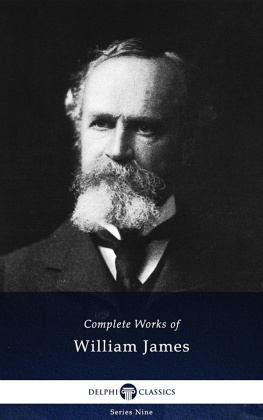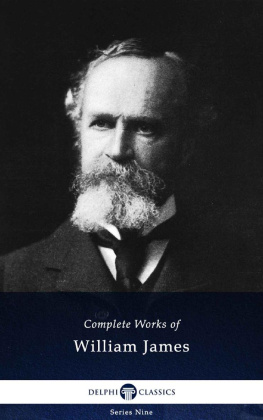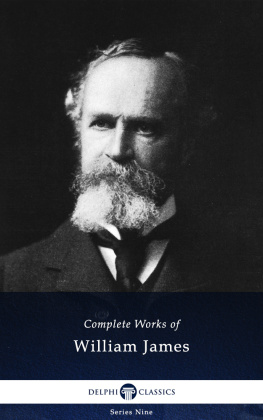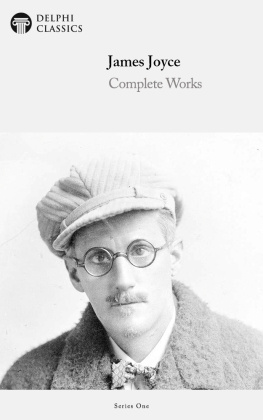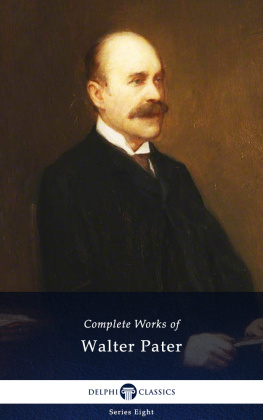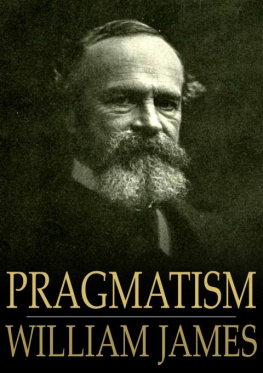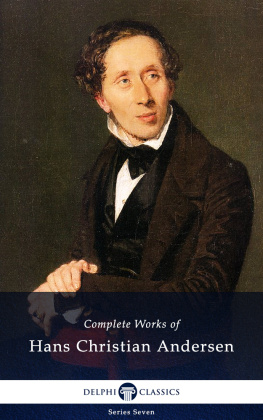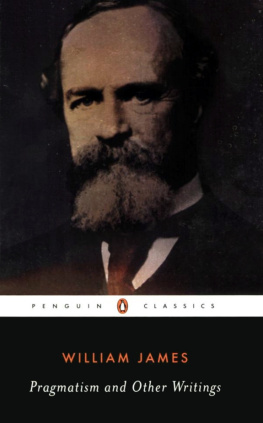The Complete Works of
WILLIAM JAMES
(1842-1910)

Contents

Delphi Classics 2018
Version 1


Browse our Main Series

Browse our Ancient Classics

Browse our Poets

Browse our Art eBooks

Browse our Classical Music series

The Complete Works of
WILLIAM JAMES

with introductions by Gill Rossini
www.gillrossini.com
By Delphi Classics, 2018
COPYRIGHT
Complete Works of William James

First published in the United Kingdom in 2018 by Delphi Classics.
Delphi Classics, 2018.
All rights reserved. No part of this publication may be reproduced, stored in a retrieval system, or transmitted, in any form or by any means, without the prior permission in writing of the publisher, nor be otherwise circulated in any form other than that in which it is published.
ISBN: 978 1 78656 403 0
Delphi Classics
is an imprint of
Delphi Publishing Ltd
Hastings, East Sussex
United Kingdom
Contact: sales@delphiclassics.com

www.delphiclassics.com
Interested in William James?

These comprehensive editions are beautifully illustrated, packed with bonus texts and offer eReaders some of the greatest philosophical works ever written.
Explore our Philosophers...
The Books

Astor House, the first luxury hotel in New York City. Located on the corner of Broadway and Vesey Street in Lower Manhattan, it opened in 1836 and soon became the best known hotel in America William James was born at Astor House in 1842.

James father, Henry James Sr. (1811-1882) was an American theologian and adherent of Swedenborgianism

Photograph Henry James III and William James Jr., c. 1881

Portrait of William James by John La Farge, c. 1859
The Principles of Psychology

The Principles of Psychology was published in 1890 by Henry Holt & Co. of New York, with 1,200 pages divided into two volumes. James was confident his huge work would be well received, as portions of it had already been published as articles in journals and they had been positively reviewed. However, James was not an ebullient man he could lack confidence in himself and be introspective, even depressive and on handing over the manuscript to the publisher he gloomily described it as a loathsome, distendedbloated, dropsical mass. However, to his brother Henry (the novelist and author of such classics as The Portrait of a Lady ) he said his Principles was good as far as it went. After fifteen months, at the end of 1891, the book was in its third printing and 1,800 copies had been distributed. James writes eloquently and elegantly, but this work in particular is not verbose and his style makes his ideas accessible to the lay person, as well as his colleagues. This is partly due to his use of gentle humour and analogy, placing everyday scenes in the narrative to illustrate a point of psychology. To some peers, this accessible style was seen as too personal, whilst others even claimed he had broken with the accepted rules of psychology. The book was to become an enduring classic for psychology students and professionals alike and equally today is read by those who have had no experience of such texts before, such is its reputation. This is perhaps because it also had an influence on philosophical studies and is even seen in general terms as an important piece of literature.
James did not have a straightforward route to the point of writing The Principles of Psychology . He had difficulty choosing a career, firstly exploring what he saw as his calling to be an artist before eventually deciding on medicine, although he never intended to practise it. He spent his academic career entirely at Harvard, firstly as Instructor in Physiology and Anatomy, but later settling on Psychology or Philosophy after the mid-1870s he was later to claim he drifted into the study of these two latter subjects. His influence as teacher alone is significant he taught some of the future great intellects and figures of America, such as Theodore Roosevelt and Gertrude Stein, whilst the first PhD student James supervised, G. Stanley Hall, served twice as President of the American Psychological Association (but was to turn on his former mentor by claiming that in Principles , James was far too impressionistic, even spiritual).
James was promoted to Professor of Psychology in 1889, only a year before Principles was published. Before graduating, he had suffered prolonged mental illness, his deep lingering depressions leading to thoughts of suicide. Undoubtedly, the soul searching he had to undertake to improve his mental state, his wide ranging academic interests, his other life experiences and his studies in Germany as a young man, all informed Principles of Psychology. In addition, the study of psychology had become increasingly popular in America from the 1870s, which offered a ready audience for his work. Though it was not the first psychological treatise by any means, it came not long after the publication of works which to an extent, brought philosophy into psychology almost in a cross-disciplinary way such a melding of subjects was to be reversed in the coming decades. James narrative in his first bookalso reflects the contemporary interest in and use of, mind altering drugs such as cocaine, cannabis and peyote (which contains the hallucinogenic drug mescaline) and James refers to hallucinogenic influences in this work.
Next page
